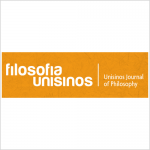Playing with Philosophical Puzzles: What Happens when Legal and Moral Norms face Jørgensen’s Dilemma
Vol 17, No 3 (2016) • Filosofia Unisinos - Unisinos Journal of Philosophy
Autor: Juliele Maria Sievers
Resumo:
This article aims to evaluate the relations between law and logic concerning the particular aspect of the creation of a norm. It is commonly accepted among lawyers that the “new” norm is generated via a practical syllogism, constituted by a general norm and the corresponding fact as premises, generating as the conclusion the individual norm regarding that fact, for instance: “You should follow your promises”, “This is a promise of yours”, “Therefore, you should follow this promise”. While the validity of such an argument is evident, there is, surprisingly, no logical justification for the application of the rule of inference to norms (which are not true or false). This is a philosophical puzzle named after Jørgen Jørgensen, coined by Alf Ross in the 1940s, which in the 1970s received an original answer from the jurist Hans Kelsen, based on the notion of a “modally indifferent substrate”. With this notion, Kelsen intends to show that the abovementioned dilemma is actually an illusion. Our aim is to show that Kelsen’s treatment only solves the issue at the legal normative level; the problem still remains on a moral normative level and concerning regular imperatives.
ISSN: ISSN: 1984-8234
Texto Completo: http://revistas.unisinos.br/index.php/filosofia/article/view/fsu.2016.173.11
Palavras-Chave: legal philosophy, logic,moral, Jørgensen’s di

Filosofia Unisinos - Unisinos Journal of Philosophy
The journal Filosofia Unisinos - Unisinos Journal of Philosophy is published once every four months by Universidade do Vale do Rio dos Sinos.
Articles must be original, unpublished, and not under consideration for publication anywhere else and can be written in Portuguese, English or Spanish
Filosofia Unisinos - Unisinos Journal of Philosophy prints articles, translations and critical book reviews. It also reprints papers that are considered fundamental to the area when authorized written permission is given by the original publisher.
